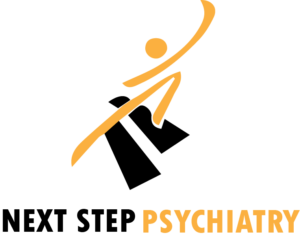Introduction:
Post-traumatic stress disorder (PTSD) is a mental health condition that can have profound effects on individuals and their relationships. Whether you or a loved one is living with PTSD, navigating relationships while managing symptoms can present unique challenges. In this blog post, we’ll explore the impact of PTSD on relationships, offer tips for supporting yourself and your loved ones, and provide guidance for fostering healthy and supportive relationships in the face of PTSD.
Understanding PTSD and its Effects on Relationships:
PTSD can develop in individuals who have experienced or witnessed a traumatic event, such as combat, sexual assault, natural disasters, or accidents. The symptoms of PTSD can significantly impact various aspects of a person’s life, including their relationships with family, friends, romantic partners, and coworkers. Common symptoms of PTSD include intrusive memories, flashbacks, hypervigilance, avoidance of triggers, emotional numbing, and difficulty concentrating or sleeping. These symptoms can strain relationships, lead to misunderstandings, and create challenges in communication and intimacy.
Supporting Yourself and Your Loved Ones:
- Educate Yourself about PTSD: Take the time to learn about the symptoms, triggers, and treatment options for PTSD. Understanding the condition can help you better support yourself or your loved one and navigate challenges more effectively.
- Practice Compassionate Communication: Foster open and honest communication with your loved ones about your experiences, feelings, and needs. Practice active listening, empathy, and validation to create a safe and supportive environment for sharing.
- Set Boundaries: Establish clear boundaries to protect your emotional well-being and prevent burnout. Communicate your boundaries assertively and respectfully, and honor the boundaries of others.
- Seek Professional Help: If you or your loved one is struggling with PTSD, don’t hesitate to seek professional help from a therapist, counselor, or support group. Therapy can provide valuable tools and coping strategies for managing symptoms and improving relationships.
- Practice Self-Care: Prioritize self-care activities that promote relaxation, stress reduction, and emotional healing. Engage in activities that bring you joy, such as exercise, hobbies, spending time in nature, or connecting with supportive friends and family members.
Fostering Healthy and Supportive Relationships:
- Build Trust and Understanding: Cultivate trust and understanding in your relationships by being reliable, consistent, and empathetic. Validate your loved one’s experiences and emotions, and offer reassurance and support when needed.
- Be Patient and Flexible: Understand that recovery from PTSD is a gradual process that takes time and patience. Be patient with yourself and your loved ones, and recognize that setbacks are a normal part of the healing journey.
- Focus on Strengths and Resilience: Acknowledge and celebrate the strengths and resilience of yourself and your loved ones. Recognize the progress you’ve made and the courage it takes to confront and overcome challenges.
- Seek Support Together: Consider attending therapy or support groups together as a way to strengthen your relationship and learn new coping strategies. Mutual support and understanding can foster greater intimacy and connection in your relationship.
- Practice Forgiveness and Acceptance: Practice forgiveness and acceptance for yourself and your loved ones. Let go of guilt, shame, and resentment, and focus on building a future based on compassion, understanding, and mutual support.
Conclusion:
Navigating relationships while managing PTSD can be challenging, but with patience, understanding, and support, it is possible to foster healthy and supportive connections with yourself and your loved ones. By educating yourself about PTSD, practicing compassionate communication, setting boundaries, seeking professional help when needed, and fostering healthy relationship dynamics, you can create a safe and supportive environment for healing and growth. Remember, you are not alone in your journey, and there is hope and help available. With the right resources and support network, you can navigate the complexities of PTSD and build meaningful and fulfilling relationships that contribute to your overall well-being.

